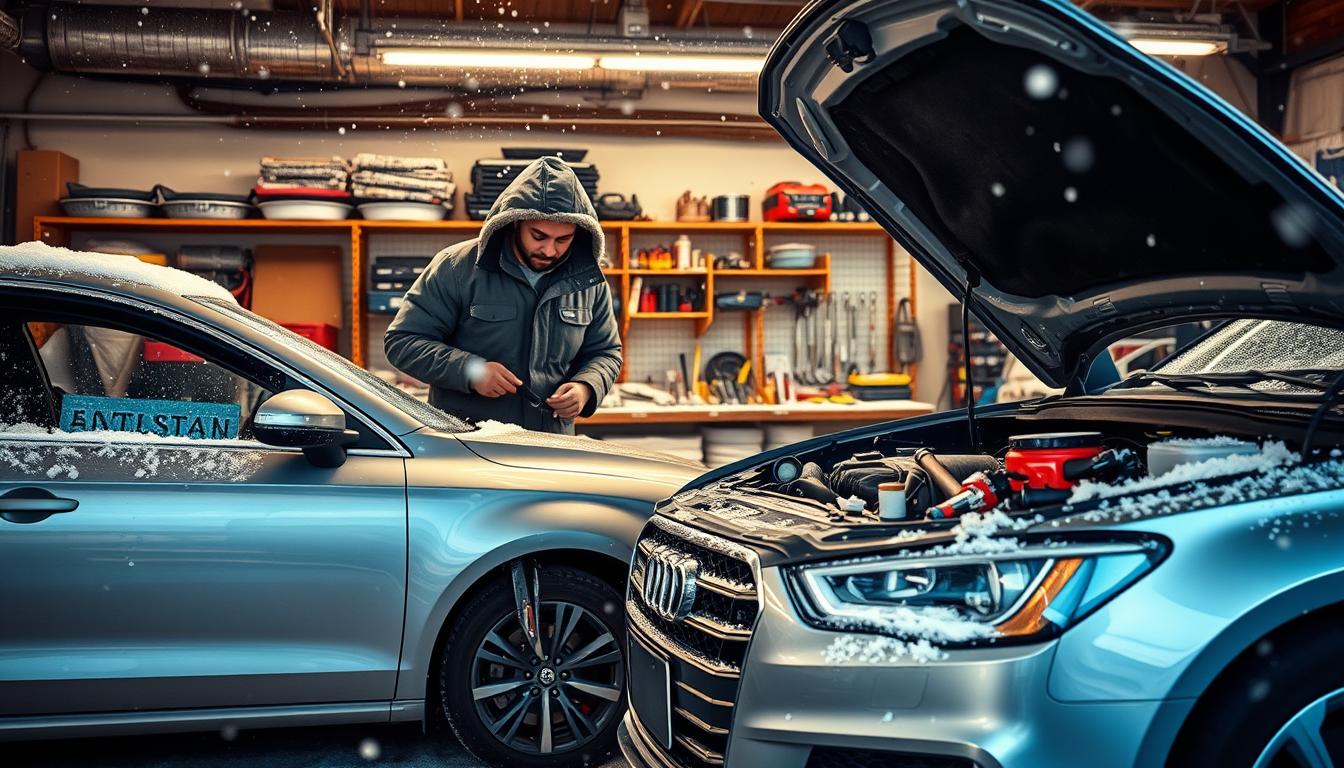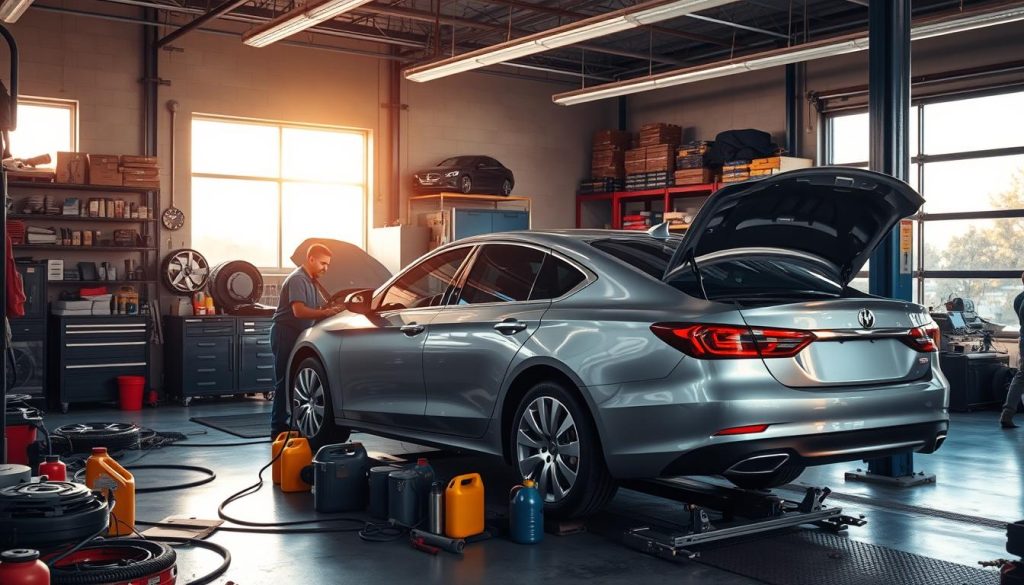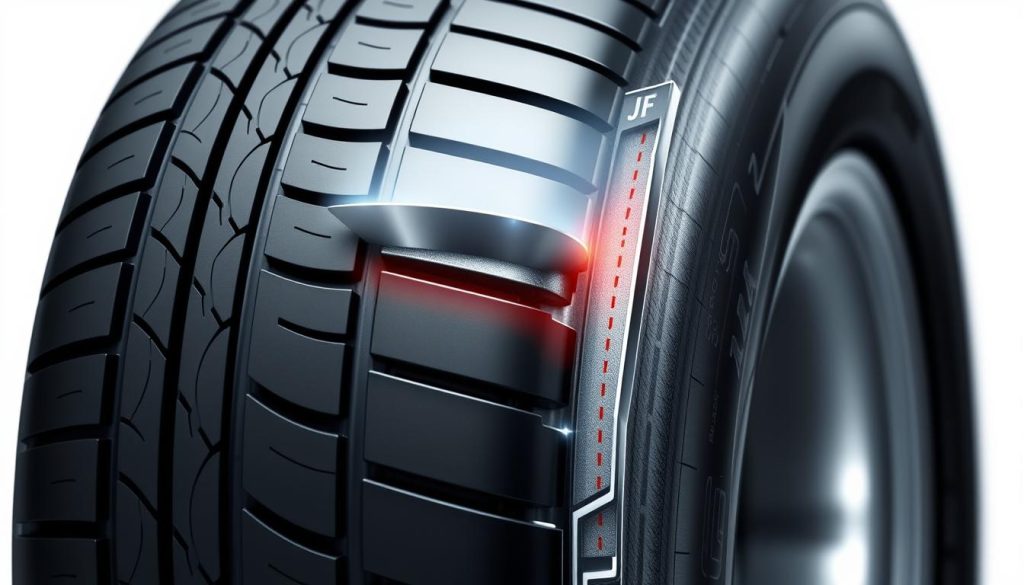Winter is coming, and we need to get our cars ready. Snow, sleet, and ice are big dangers. In 2022, bad weather caused 498 fatal crashes and over 32,000 injuries.
By getting our cars ready, we can drive safely. Places like Heaven Automotive at 6645 Poss Rd, San Antonio, TX 78238 can help make sure our cars are ready for the road.
Key Takeaways
- Inadequate preparation for winter driving can lead to serious accidents.
- Regular maintenance checks can prevent up to 90% of winter-related vehicle issues.
- Battery performance declines in cold temperatures; testing is essential.
- Winter tires improve traction and safety in icy conditions.
- Car safety equipment, like an emergency kit, is critical during winter.
The Importance of Winter Car Maintenance
Winter months bring challenges for our cars. Cold weather increases the risks. Icy roads and snow make driving unsafe.
Winter car maintenance helps a lot. It deals with battery issues, tire performance, and visibility. Being proactive keeps us safe and our cars running well, even in harsh weather.
Understanding the Risks of Cold Weather
Cold weather affects our cars a lot. Batteries get weaker, needing more power to start. Tires wear down faster if they’re not inflated right.
Driving in these conditions can lead to breakdowns. About 20% of winter breakdowns are because of battery failures. Regular checks are very important.
How Proper Maintenance Improves Safety
Good winter car maintenance makes our cars safer. Keeping the gas tank half-full stops moisture from freezing in gas lines. Checking tires, including switching to winter tires, improves traction by 30%.
It’s also key to check fluid levels, like oil. Cold weather makes oil thicker, affecting engine performance. Regular maintenance greatly reduces cold weather risks and keeps us ready to drive.
Battery Check: Ensuring Reliability in Cold Temperatures
Winter is coming, and our car’s battery needs to be ready. A battery check is key to avoid breakdowns in the cold. Car batteries lose power fast when it’s cold, so we must keep them in good shape.
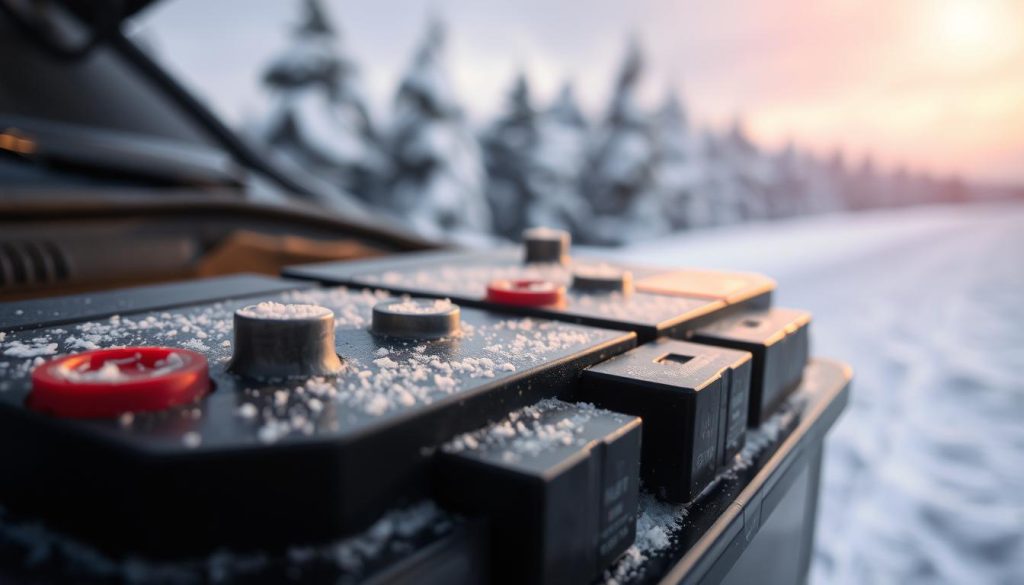
Testing Battery Performance
Before winter hits, test your battery’s strength. A good battery reads 12.4 V or higher. This check tells us if our battery can handle the cold.
Batteries over three years old often struggle in the cold. Testing early helps us fix problems before they get worse.
Replacing a Weak Battery
If your battery test shows weakness, it’s time for a new one. Look for batteries with at least 600 Cold Cranking Amps for winter. A good battery won’t freeze until it’s very cold.
A weak battery can freeze and fail at warmer temperatures. Having a reliable battery means safer starts and fewer problems on the road.
Antifreeze Levels: Protecting Your Engine
To keep our cars running well in cold weather, we need to check the antifreeze levels. Antifreeze, made of ethylene glycol and water, keeps the engine from freezing. It also lowers the boiling point of the coolant. This helps avoid expensive engine damage.
Checking and Maintaining Antifreeze Ratios
We should check the antifreeze levels at least twice a year, before winter. Look at the overflow tank and make sure the mix is right. If it’s low, add more, but watch out for leaks.
Change the antifreeze every 30,000 miles or when the manual says. This keeps the coolant working well and protects the engine.
Understanding the Role of Antifreeze
Antifreeze does many important things for our cars. It keeps the coolant from freezing in cold weather. This protects the engine from damage.
It also helps the engine run well in hot weather. The inhibitors in antifreeze stop rust and corrosion. This makes the engine last longer and run better.
But, we must use the right kind of antifreeze. The wrong one can harm the engine. Regular cooling system checks, like radiator flushes, keep the engine running smoothly.
Optimizing Tire Traction for Winter Driving
Winter brings special challenges for drivers. Tire traction is key to staying safe on icy roads. Keeping tires in good shape is important.
Checking Tire Pressure Regularly
Checking tire pressure is very important in winter. Cold weather makes tire pressure go down. This can make driving riskier.
We need to check our tire pressure often. This keeps our tires working well. It also helps us save gas.
Investing in Winter Tires for Better Grips
Winter tires are made for cold weather. They stay soft and grip the road better. This is unlike all-season tires that get hard.
Winter tires give us up to 50% better grip on snow and ice. If you live where it snows a lot, get winter tires. They make driving safer.
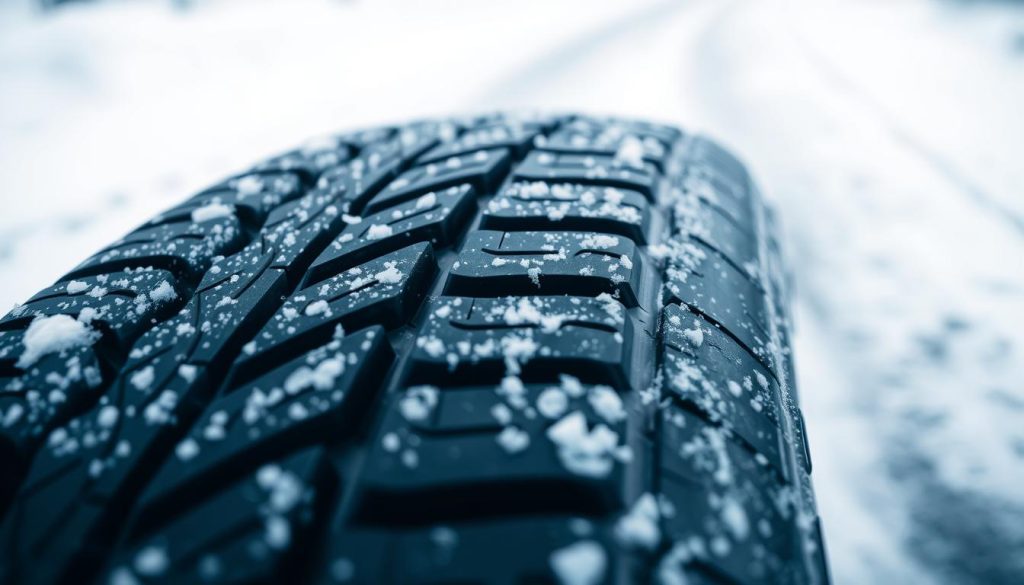
Fluid Checks: Keeping Essential Systems Functional
In winter, it’s key to check our car’s fluids often. We should do this at least once a month or before long trips. This helps avoid emergencies and keeps our car running well.
Windshield Wiper Fluid for Visibility
Windshield wiper fluid is very important in bad weather. We need to use winter-grade fluid to keep it from freezing. This makes sure our view is clear in snow, rain, and fog.
Engine Coolant and Its Importance in Cold Weather
Keeping the right amount of engine coolant is very important when it’s cold. A mix of 50% water and 50% antifreeze keeps the engine from overheating or freezing. If there’s not enough coolant or the mix is wrong, it can damage the engine. We should check it often to make sure it’s clean and working right.
Preparing an Emergency Kit for Winter Conditions
As winter driving starts, making a winter emergency kit is key for our safety. We might face unexpected situations. Having the right supplies can greatly help in emergencies or breakdowns.
A good winter emergency kit keeps us safe and ready. It protects our wellbeing during the cold months.
Essential Items to Include
- Snow shovel: A small shovel is key for digging out of snow. It saves time in the cold.
- Jumper cables: Cold weather weakens batteries. A jump starter or cables are a must.
- First-aid supplies: A good first-aid kit helps with minor injuries.
- Warm blankets: These keep us warm while waiting for help.
- Non-perishable food: High-energy snacks keep us going if we’re stuck for a long time.
- Emergency flares or reflective triangles: They make us more visible in the dark.
Importance of Being Prepared for Emergencies
Being ready for emergencies is vital in winter. A winter emergency kit can make us 70% safer in emergencies. Sadly, 40% of drivers forget to check their vehicle’s fluids before winter.
By having the right items, we lower the risk of hypothermia. Regularly check and update our kit to stay safe all winter.
Conclusion
Winter is coming, and we must make sure our cars are ready. We need to check batteries, antifreeze, tires, and fluids. This keeps our cars working well in the cold.
Having the right emergency kit is also key. We should check tire tread and battery health. This helps us face winter driving challenges.
It’s important to fix problems early. This makes sure our cars are safe all winter.
If you need help, talk to Heaven Automotive. They know how to get your car winter-ready. This gives you peace of mind on the road.

